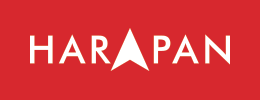The COVID-19 pandemic has increased the absolute poverty rate in Malaysia from 5.6% in 2019 to 8.4% in 2020. In total, 12.5% of Malaysian households are reportedly earning less than RM2,500 per month. The pandemic has also changed the composition of income groups due to 20% of M40 households slipping into the B40 category.
ERADICATING POVERTY AT ALL LEVELS
HARAPAN is determined to eradicate poverty to ensure that every member of our society can live a dignified life and simultaneously contribute to the community. We can eradicate poverty by addressing it at every level while also giving special attention to urban poverty.
Micro-credit Financing – We can address poverty at every level. By using the approach of providing micro-credit via fund injection for Amanah Ikhtiar Malaysia and Yayasan Usaha Maju, we can provide opportunities for vulnerable demographics to participate in economic opportunities and free themselves from the vicious poverty cycle.
Bantuan Sara Hidup (BSH) and Free Breakfast – Continuing the Bantuan Sara Hidup program to help overcome living costs. Targeted free breakfast programmes for pupils in schools will also be enhanced to ensure that pupils from poor households are not left behind.
Nurturing Happy Families – 1 out of 5 children under the age of five are suffering from stunted growth. Monthly assistance for every family will be provided based on the number of children below the age of 6 years old. This is done to help impoverished families and ensure that the children are healthy and their growth unimpeded.
No One Left Behind – Partnering with every Member of Parliament to identify excluded communities in all federal-level poverty eradication programmes such as “MySalam” and “Program Kasih Suri Malaysia”.
URBAN POVERTY
Due to the different assortment of challenges faced by city dwellers, special attention must be given to those facing urban poverty. We can eradicate urban poverty by implementing these targeted policies.
Affordable Home Ownership and Rental – Providing affordable homes for ownership, rental, low cost and medium cost, and transit housing for localities that need them.
Community Health Access – Building up more Klinik Kesihatan in high density areas and areas with high poverty incidence. Expanding healthcare programmes which emphasise disease prevention services that include door-to-door testing in low-cost apartments.
Safe Space and Community Kitchen – The biggest challenge faced by those struggling in urban poverty, especially single parents, is finding a safe space for their children outside of school hours. HARAPAN will work together with non-government organisations (NGO) to provide safe spaces for children to learn and socialise. Community Kitchens will also be set up to prepare food for children and help impoverished families.
Community Policing – Initiatives for poverty eradication must be implemented alongside efforts to increase the quality of life for those living in urban poverty. The Neighbourhood Watch (Rukun Tetangga) model can be practised in low-cost housing areas when provided a suitable amount of funding. Community Policing not only helps ensure the safety of the neighbourhood but also helps overcome other social ills and encourages participation in communal activities.
